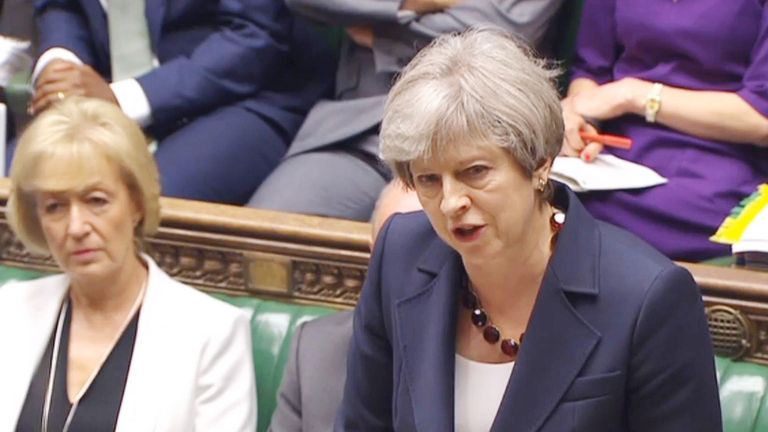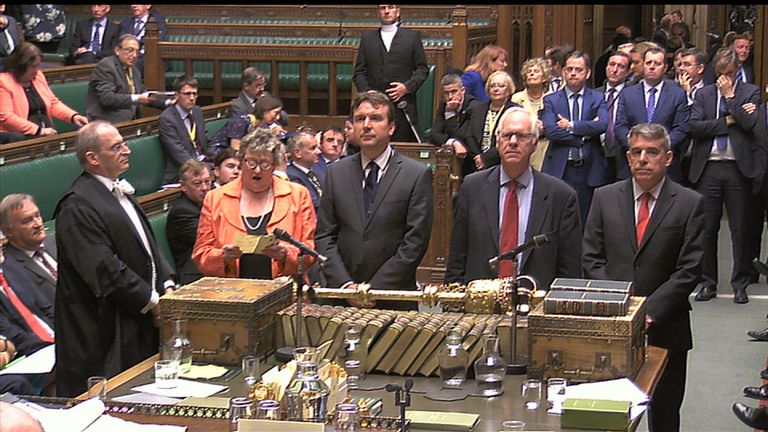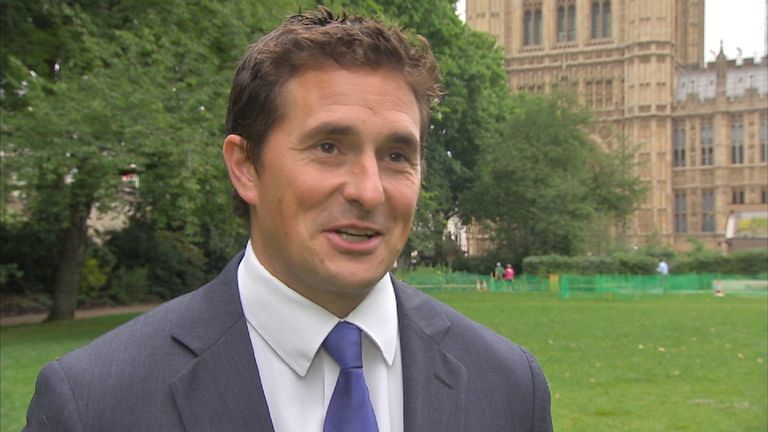Government survives Queen's Speech vote but is far from winning
Despite defeating a Labour amendment the Prime Minister is still facing difficulties - including on public sector pay.
Thursday 29 June 2017 11:05, UK
The Government survived Wednesday night's vote on the Queen's Speech - but actually winning is another matter entirely.
Everybody these days supports hard-working public servants and, in particular, the emergency services after the horrors of Manchester, London Bridge and Grenfell Tower.
On Wednesday, in the first test of her minority Government, the Prime Minister passed.
Her Government to scrap the public sector pay cap, with Theresa May dependent on her DUP allies to defeat Labour's proposal.
The £1bn payout to Northern Ireland yielded returns for the Treasury by preventing a pay rise that would have cost £4bn.
But this was a small win on a day of confusion over the seven years old austerity policy.
Cabinet ministers such as Defence Secretary Michael Fallon hinted at a change in the morning, which set the hares running.
Then, just after Prime Minister's Questions, Number 10 told journalists the Government and hinted at a review in time for autumn's Budget.
Yet, three hours later, Downing Street insisted 15 times "the policy has not changed".
It was something of a U-turn on a U-turn and had all the hallmarks of the Treasury's intervention. This is what happens when painful parliamentary arithmetic meets painful deficit reduction.
In the debate on the Queen's Speech, Labour criticised the lack of clarity on public sector pay with shadow health secretary Jon Ashworth declaring the Government could not even execute a U-turn competently.
Health Secretary Jeremy Hunt insisted the Government "will not make our decision on public sector pay until the pay review body has reported and we listen to what they say".
Ministers have ignored those recommendations in recent years but Mr Hunt also said the Government would listen to Parliament.
Tory MPs who voted with the Government against the Labour amendment actually back scrapping the public sector cap.
Johnny Mercer, MP for Plymouth Moor View, said he would be campaigning for public sector workers to get a larger than 1% annual pay rise, while South Cambridgeshire MP Heidi Allen also expressed concern about the cap.
In any event, public servants sense a change in the weather on austerity after the General Election - raising the prospect of strikes.
The bigger point here is that Wednesday's vote illustrates how it will take just seven Tory MPs to rebel on anything for this Government to lose its majority. And it need not even get to that.
If Conservative whips believe seven MPs might rebel, or 14 MPs might abstain, the Tory majority is gone.
On this basis there is no way an actual vote on public sector pay - rather than a Queen's Speech amendment - would have passed.
Today and tomorrow is about survival. The Government is far from winning much just yet.






